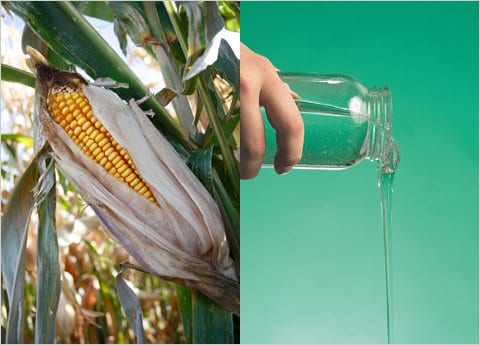As the year draws to a close, it's a perfect time to look back on the nutrition stories that made headlines in 2010. From great strides forward to frightening recalls and strange rulings, it's been an up-and-down year in nutrition news.
Here are the top three best and worst nutrition stories of 2010, as chosen by the dietitian editors of www.HealthCastle.com.
Top 3 Best Nutrition Stories of 2010
1. Saturated fat is not linked to heart disease after all: In February, U.S. researchers did a meta-analysis of 21 studies involving almost 350,000 subjects, and determined that despite what we've been told, there is no evidence that saturated fat is linked to an increased risk of heart attack. So, there's no need to go for all those "fat-reduced" products like fat-free ice cream, low-fat cheese, low-fat yogurt, low-fat cream cheese, and so on. These fat-free/low-fat versions generally don't taste as good, and they contain more additives to recreate the mouth feel of the removed fat. Stick to the original versions of these foods, and just remember that moderation is always the key.
2. Food blogs explosion: Technorati lists almost 9,000 "recipes" blogs, and more than 20,000 "food" blogs, which means more people are thinking – and writing – about the food they eat, creating a ton of resources for anyone who wants to start developing their own cooking skills, growing their own food, or generally learning more about food. In August, HealthCastle.com selected their Top 8 food blogs, which can be found at http://www.healthcastle.com/featured_blogs_home.shtml.
3. Canada declares BPA toxic: In October, Canada became the first country to officially name BPA a toxic substance, which gives the government more power to remove it from the Canadian food supply. Hopefully, this will trigger authorities in the United States to review the risks and benefits of BPA in our food supply. This hormone-like substance, which may be linked to impotency, heart disease, and even cancer, is still used to line food cans, and in many plastics. To avoid it, choose glass jars or frozen products instead of cans (especially for acidic products like tomatoes), and look for plastics labeled "BPA-free." (And never microwave food in a plastic container – use glass instead.)
Top 3 Worst Nutrition Stories of 2010
1. Egg recall: In August, more than half a billion eggs were recalled due to a salmonella outbreak at two Iowa farms. While there were no deaths, there were hundreds of cases of salmonella poisoning before the eggs were recalled. To ensure your eggs are safe, try buying local eggs from smaller farms (where conditions are less likely to encourage a salmonella outbreak), always refrigerate and fully cook your eggs, and try pasteurized eggs (stamped with a red-circled P) for recipes calling for raw eggs.
2. Proposed name change of HFCS to corn sugar: In September, the Corn Refiners Association petitioned the FDA to change the name of high fructose corn syrup (HFCS) to corn sugar, likely because their product's critics have linked it to a myriad of health problems, including obesity and hypertension, leading to an increasingly negative image for the sweetener. But a new name doesn't change the product, and is unlikely to "clear up confusion," as the Association suggests. "Corn sugar" is still the same old HFCS, not a healthy new "natural" sugar.
3. New York City bans baked goods from bake sales in public schools: In March, in an attempt to control calories and fat in items sold on school grounds, New York City banned homemade goods at school bake sales in favor of a list of approved items that, strangely, includes some varieties of Doritos and Pop-Tarts. While these packed foods may fit the city's calorie guidelines, they are loaded with additives and artificial ingredients you'd never find in a homemade treat, making them a dubious choice. An item made with real ingredients at home wins the nutrition battle every time, even if it does have a few more calories.
It can be hard to know what to do with the nutrition information you get from the news, especially since it seems that the news is always changing. Seeking the input of a registered dietitian or consulting the resources on HealthCastle.com is a great way to make sure you're making the best nutrition decisions for yourself and your family. More healthy eating tips from registered dietitians are available at www.HealthCastle.com, an official USDA MyPyramid Partner.





